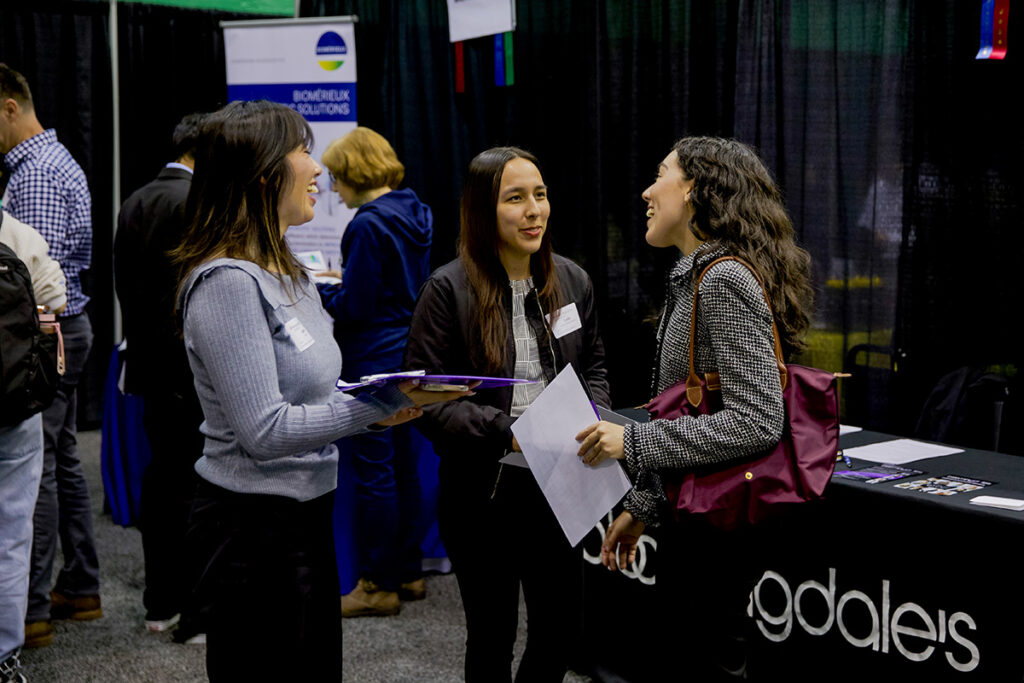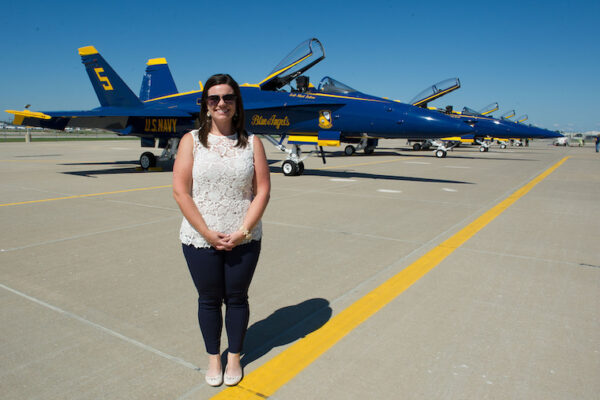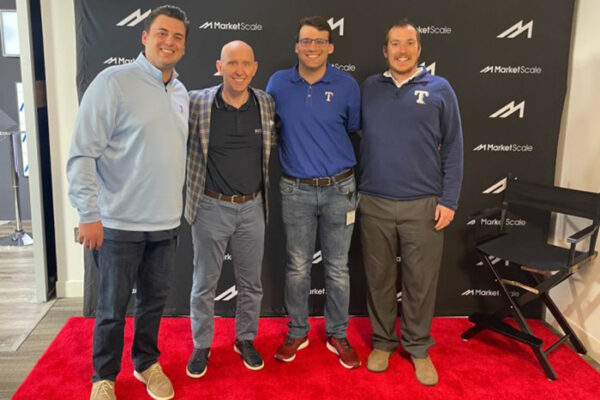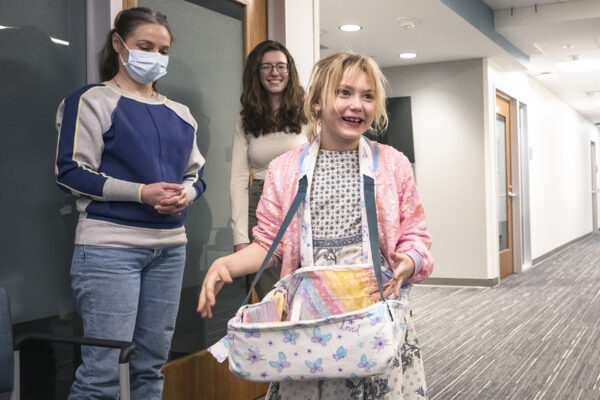Norma Guerra Gaier, leader of the new Washington University in St. Louis Center for Career Engagement, has assembled a talented team of career coaches, strategists and employer engagement specialists. Equally important, she is enlisting partners from every corner of campus to help prepare students for lifelong success.
“One of the great things about WashU is that it has established career as a priority,” said Gaier, the recently appointed associate vice chancellor for career development and education. “That means our partners in the classroom, student affairs, and so many others at WashU are all engaged in this work.”
Since her arrival in the fall, Gaier has fully launched the center’s career communities program, developed new partnerships with academic divisions and moved to a unified career-engagement model. Gaier previously spearheaded career education for the University of Texas at Austin and served as president of the National Association of Colleges and Employers (NACE), where she helped develop its career readiness initiative. Here, Gaier shares her goals for the Center for Career Engagement.
How has the role of career centers in higher education changed?
At one point in time, they were called placement centers, and really that was the goal — to place students in jobs and internships. The focus now is on career management. In today’s world, a student may change jobs 10, 15 times and have five career shifts. So how can we prepare a student to be adaptable and agile in that environment? The answer is to not just prepare them for that first opportunity, but for a lifetime of success. That starts with the exploration of self — understanding how your skills, interests, personality traits and values inform your possibilities and learning how to articulate that to employers.
Do students understand this shift?
A lot of students come here and say, “I need help with this resume.” And, of course, we can do that. But first, let’s talk. What are your goals? What is your story? How do you want that story to evolve? We can help our students explore those questions and envision a pathway for themselves and put markers along the way. Those could be internships, of course, but there are a lot of experiential opportunities that are project-based or short term — study abroad, civic engagement and case competitions (where students compete to create the best solution to a case study) are all ways to build a portfolio of experiences.
At NACE, you helped identify and develop the concept of career readiness competencies. What prompted that work?
Career Center colleagues kept hearing from employers of all sizes and industries that they weren’t finding the talent they needed. So, after extensive research, NACE developed a set of career readiness competencies: communication, both verbal and nonverbal; critical thinking; teamwork; technology; leadership; diversity and inclusion; and professionalism. Every year, NACE surveys recent graduates and employers, and what we have learned is that while they agree on which competencies are important, there are pretty big gaps between how effective employees think they are and how effective employers think they are, especially in the areas of communications and critical thinking and professionalism. What I hear from employers is that new employees need to jump in and be more assertive and not be afraid to fail. I will push back on that and ask employers how they are letting students know it’s OK to take risks. But yes, we need to teach students that they might learn some impactful lessons through failure, and with the high-caliber education and experiences they receive at WashU, they are ready for these challenges and growth opportunities.
Where are WashU students learning these competencies?
Everywhere. There are no fences between us and our partners across campus. That’s not the case at every university. Chancellor Andrew Martin and Dr. G (Anna Gonzalez, vice chancellor for student affairs) fully support this work. I remember when I came here, one of the first people I met was Erin McGlothlin (vice dean of undergraduate affairs in Arts & Sciences), and I was blown away by what was happening in the school through their “Literacies for Life and Career” initiative. It’s not uncommon for people in career education to get pushback from professors who say, “You do your thing, we’re teaching over here.” But at WashU, faculty are leveraging what is already happening in the classroom to help students build literacies like leadership and problem-solving. Likewise, as students engage in campus experiences, they are building critical competencies that are valued by employers, graduate and professional programs. The goal is for students to recognize the competencies they are developing and learn how to communicate their knowledge and skills to potential employers.
‘The goal is for students to recognize the competencies they are developing and learn how to communicate their knowledge and skills to potential employers.’
Norma Guerra Gaier

There are already more than 3,300 students registered in the center’s new career communities. What are those?
We built our career communities around industries, not majors. The business community, for instance, isn’t just for Olin students. You can be in the arts, design and media community and want to work in a technical capacity. Or be in the business community and be in a creative space. And the cool thing is you can be in more than one career community. The career communities promote different resources, technologies and programs such as panel discussions and alumni visits. Each career community has several coaches who are specialists in the field. We also pull opportunities from Handshake and let students know about them. We are excited by the initial success; nearly 100% of our first-year students are in a career community.
WashU set out to unify its career centers two years ago. How is that process going?
The goal of the unification was to expand and elevate career services across campus for all students. To me, it’s an access issue. In the past, not all students realized the opportunities available to them. Right now, there are more than 18,000 jobs and internships posted in our campuswide job board, called Handshake, and it is critical to have one place where students can go to find opportunities. The career communities also are a big part of the unification process. They are already providing a forum for continuous sharing and learning, not only from our staff, but from students from across campus.
The unification process also has been a big win for employers. We know most employers are not hiring to major anymore. There are certainly a few industries and professions that require certain majors or a certain certification process. But, for the most part, major doesn’t equal career. Employers are saying, “I need students with these essential competencies, and that is what matters.” And they’re finding that often that talent can exist in multiple majors. And that really matters at a place like WashU, where many of our students take an interdisciplinary approach to their education and have so many career interests.



